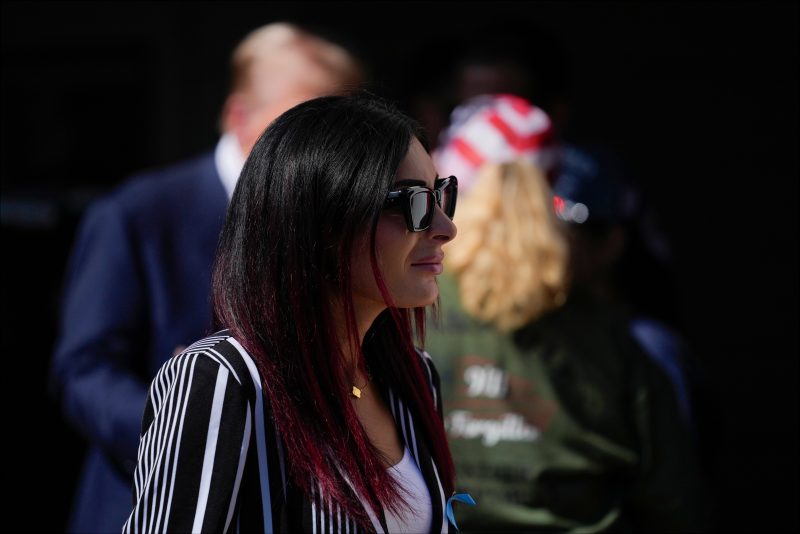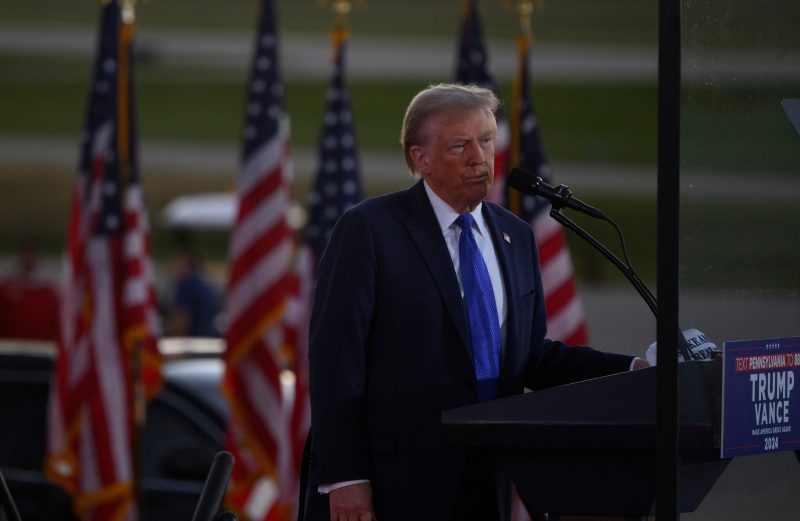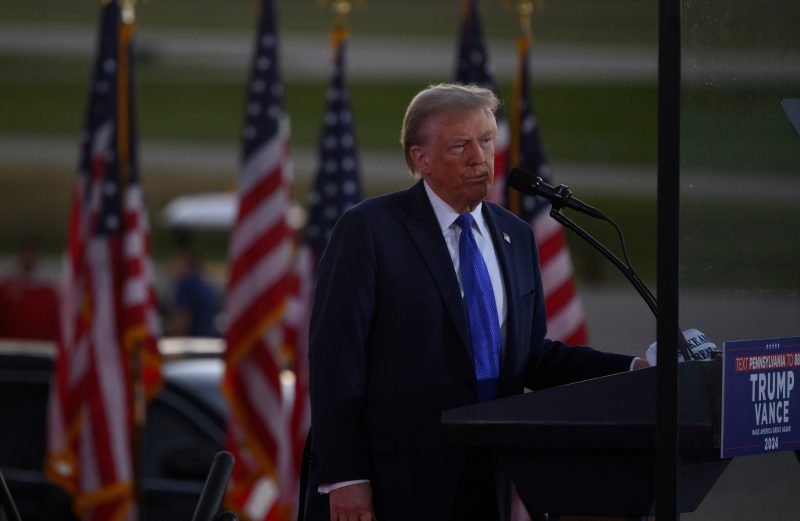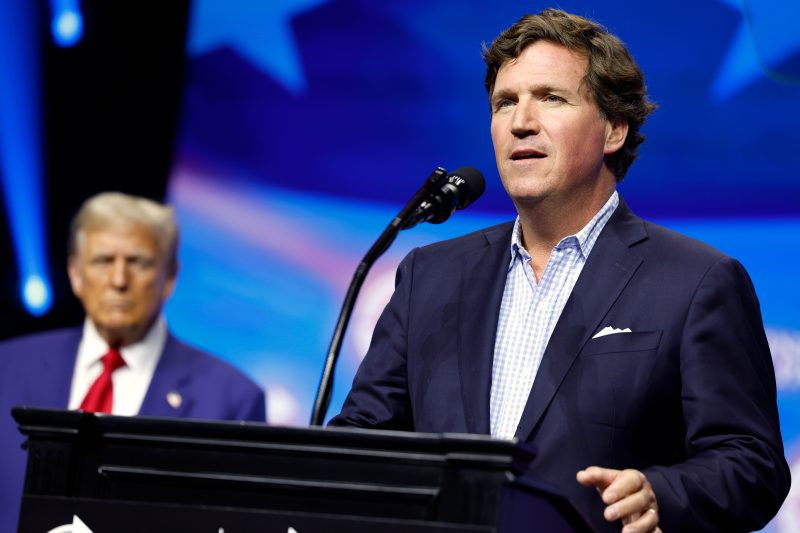
Laura Loomer is a symptom. Trump’s problem is his own.
Perhaps you aren’t familiar with Laura Loomer. Congratulations; that level of detachment from the online fringe is undoubtedly healthy.
For the purposes of this article, though, it’s necessary that you know at least a little something about her background, so you’ll need to bear with me for a moment.
Loomer is one of myriad right-wing voices whose presence in the national conversation is a function of sheer will, of her unrelenting interest in doing what she can to attract attention. She is one of those people for whom different people point to different anecdotes as the best encapsulation of her politics and approach.
Some, for example, like to summarize Loomer by talking about the time she handcuffed herself to the door of Twitter’s office in New York City because she had been banned from the platform for posting hateful comments. Others identify the time she tried to expose the liberal bias of a college by starting a pro-Islamic State fan club. Others simply elevate any of the various toxic comments Loomer has made on social media — comments that seem to be appearing at a more rapid clip as the nation’s attention has, at long last, turned in her direction.
This is because Loomer appeared at former president Donald Trump’s side several times in recent days. She has always been at his side ideologically and has interacted with him before, including at a tournament for the Saudi-funded golf tour hosted at one of Trump’s clubs. Earlier this year, Trump allies began worrying that he seemed to be drawing Loomer into the fold. And this week he did, including bringing Loomer on his plane as he traveled to the presidential debate and then having her tag along as he attended commemorations of the Sept. 11, 2001, terrorist attacks. Loomer has promoted conspiracy theories about those attacks.
Loomer’s presence in Trump’s inner circle before Tuesday’s presidential debate spurred a particular backlash. During his encounter with Vice President Kamala Harris, Trump amplified false claims about immigrants and relied heavily on assertions and falsehoods that are rampant within the right-wing conversational bubble. His team had pushed him to attack Harris in specific ways, without being goaded into distracting fights. He very much did not do this. So: Was Loomer to blame?
The answer, quite obviously, is no.
Trump’s debate-prep team included Rep. Matt Gaetz (R-Fla.), for example, not exactly someone who might be expected to discourage Trump’s more inflammatory impulses or to have a particularly useful insight into the tactics likely to be deployed by a Democrat. This is in keeping with Trump’s shift in the post-Biden campaign world toward people with whom he feels comfortable — and who will not discourage his more volatile instincts.
That certainly includes Loomer. But the instincts are Trump’s own. Both he and Loomer jumped into national politics at a moment when the fringe-right was using social media to gain new traction. They diverged only in the success they saw in riding that wave. Loomer might be thought of less as a Svengali who infiltrated Trump’s universe than as a personification of his own online presence. It’s as though he brought his Truth Social replies with him on his plane to the debate. As if he took the printouts of praise that a staffer provides him and formed them into a person who would do the same thing.
There is no reason to think that, had Loomer not been on that plane earlier this week, Trump’s debate performance would have been significantly different. Would he have avoided elevating baseless claims about immigrants eating pets, something that had been pervasive on right-wing social media the day before? Would he have responded to Harris’s obvious efforts to get him to be mad about crowd size with indifference if not for Loomer’s presence? Reader, he would not.
It’s certainly not helpful to his campaign that Trump invited someone who promoted conspiracy theories about Sept. 11 to a somber Sept. 11 memorial. It is not helpful to have aligned himself with Loomer only to see her get into nasty public feuds with other prominent Republican allies (like Rep. Marjorie Taylor Greene of Georgia or Sen. Lindsey Graham of South Carolina). It is not helpful that Loomer followed up being at Trump’s side with obnoxious, racist comments about Harris. Thanks to her proximity, Trump now owns those actions to some extent, in the same way that he now owns part of Robert F. Kennedy Jr.’s eccentric beliefs.
But it’s not like Trump didn’t already have similar issues. In 2016, he suggested that George W. Bush bore some blame for the Sept. 11 attacks. He has feuded with plenty of Republicans, including Graham. He has made offensive, racist comments about his political opponents and immigrants, too. He and Loomer are products of the same instincts and biases; they are prone to elevating similar falsehoods and conspiracies because they think they’re politically useful or they believe them or both.
It’s easier to explain Loomer’s presence as something that makes Trump feel comfortable (like bringing back former aide Corey Lewandowski) than it is to suggest that her arrival has pushed Trump in some new direction.
Loomer is a manifestation of Trump’s worldview, not a deviation from it. If you object to Loomer, your objections really lie with the former president.



